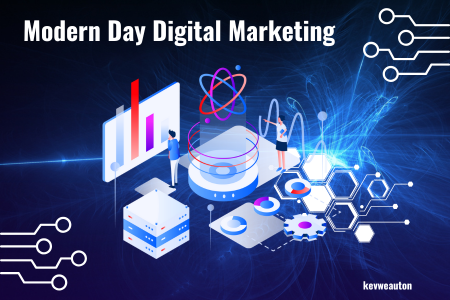Learn AI Marketing Fundamentals for Business Success
The digital marketing landscape has evolved dramatically in recent years, and artificial intelligence (AI) is at the heart of this transformation. According to recent statistics, over 80% of marketing leaders are already using or planning to incorporate AI tools in their strategies this year. So, if you’re eager to understand the basics of AI marketing, this guide will walk you through the essential strategies, tools, and benefits to help you make informed, data-driven decisions for your business.
What Is AI Marketing?
AI marketing is essentially the use of artificial intelligence technologies to make automated, data-driven decisions that help deliver effective marketing campaigns. In plain terms, it’s a way to enhance traditional marketing by applying algorithms, machine learning, and other advanced technologies to understand customer needs, predict trends, and deliver highly personalized experiences. With the right tools, marketers can automate repetitive tasks, create highly targeted campaigns, and maximize ROI—all without burning out.
For anyone starting, it’s important to grasp that AI doesn’t replace human marketers but enhances their capabilities. From handling customer queries to analyzing massive amounts of data, AI opens doors for businesses to perform more accurately, quickly, and efficiently.
How AI Marketing Works – The Basics
AI marketing relies on a few foundational elements that allow it to work its magic. Here’s a breakdown of the basics:
- Machine Learning: Machine learning (ML) enables systems to learn from data without explicit programming. In marketing, ML helps with customer segmentation, behavior prediction, and trend analysis. For example, ML can analyze past customer purchases to suggest relevant products.
- Big Data: Big data refers to the vast amount of information generated every second—like browsing history, customer feedback, and social media interactions. AI in marketing uses this data to understand patterns, preferences, and behaviors, providing insights that allow for more precise targeting.
- Natural Language Processing (NLP): NLP is what makes chatbots possible. It allows AI to understand, interpret, and respond to human language. Marketers use NLP for sentiment analysis, customer service automation, and more.
Together, these AI components help marketers engage with their audience in meaningful, scalable ways, even with limited resources.
Key Benefits of Using AI in Marketing
Embracing AI in marketing can transform how you reach and connect with your audience. Here are some of the most significant benefits:
- Enhanced Personalization: AI enables marketers to tailor content based on user preferences, improving engagement and satisfaction. Imagine receiving personalized email recommendations that actually interest you!
- Improved Targeting: AI helps create targeted campaigns by identifying the ideal audience for a product or service. With data analysis, AI tools can pinpoint exactly who is most likely to respond to specific messages, increasing conversion rates.
- Better Customer Insights: AI doesn’t just track data; it interprets it, providing actionable insights into customer behavior. Understanding who your customers are and what they want allows you to optimize your marketing efforts effectively.
- Cost Efficiency: AI-driven automation streamlines repetitive tasks, saving time and reducing labor costs. From scheduling social media posts to analyzing data, AI frees up valuable time for strategic thinking.
- Higher ROI: With AI optimizing every aspect of the marketing process, from customer segmentation to engagement, the return on investment (ROI) is often much higher than traditional methods.
AI empowers businesses to approach marketing from a data-driven angle, making every campaign more effective and cost-efficient.
Essential AI Marketing Tools and Technologies
If you’re new to AI in marketing, there are several beginner-friendly tools to help you get started:
- Chatbots: Chatbots use NLP to understand and respond to customer questions automatically. Popular platforms like Facebook Messenger and WhatsApp offer easy-to-implement chatbot options that improve customer support and engagement.
- Predictive Analytics Tools: Predictive analytics tools like Google Analytics and HubSpot use AI to forecast future trends and behaviors based on historical data, which is invaluable for planning campaigns.
- Content Generation Tools: Tools like Jasper AI and Copy.ai generate AI-powered content, from blog posts to ad copy, to help marketers maintain a steady stream of relevant content without burning out.
- Customer Relationship Management (CRM) Tools: Platforms like Salesforce and Zoho CRM integrate AI to help businesses manage customer relationships. They offer features like lead scoring, email automation, and personalized outreach.
Whether it’s chatbots for customer service or CRM tools for lead management, these tools provide an excellent starting point for beginners to dive into AI-driven marketing.
Top AI Marketing Strategies for Beginners
Now that we understand the tools and benefits, let’s discuss some practical strategies to put AI into action:
1. Customer Segmentation
Using AI, you can automatically segment your audience based on interests, demographics, and behaviors. Segmentation allows for more tailored campaigns and better overall results. By understanding which customers prefer specific products, you can send targeted emails or social media content that resonates more effectively.
2. Personalization at Scale
AI allows businesses to personalize experiences for each customer without lifting a finger. Imagine sending each customer a unique newsletter with content relevant to their past behaviors—AI makes that possible.
3. Automate Customer Service with Chatbots
A good strategy for small businesses is to automate customer service using chatbots, which handle simple inquiries 24/7. For more complex queries, chatbots can route users to human agents. This approach cuts response times and enhances customer satisfaction.
4. Content Optimization for Better Engagement
AI content optimization tools analyze factors like readability, SEO, and engagement levels to help marketers create more effective blog posts, videos, or social media content. For example, AI can analyze which blog post headlines perform best based on user engagement.
For a deeper look into AI content creation, check out our Ultimate Guide to Implementing AI Automations in Your Business on Kevwe Auto.
5. Predictive Lead Scoring
AI can help score leads based on their likelihood to convert, using historical data to prioritize outreach to the most promising prospects. CRM systems with built-in AI features make lead scoring an essential tool for any marketer.
Additional Resources on AI in Marketing
For anyone interested in diving deeper into AI marketing strategies, check out Effective Day Trading Strategies for Success on Wealthore for insights into how AI can enhance trading and other business areas. You may also find The Key AI Automation Success Factors You Can’t Ignore helpful for understanding automation best practices.
Conclusion: Embrace AI for Smarter Marketing
Learning AI marketing fundamentals is essential for anyone looking to stay competitive in today’s digital landscape. By understanding the basics—like machine learning, big data, and NLP—and using practical tools, even beginners can leverage AI to enhance their marketing efforts. Whether you’re focused on better customer insights, efficient automation, or personalized experiences, AI opens doors to more intelligent marketing solutions.
Now, it’s time to take action! Start exploring AI-powered tools that match your marketing needs, test out a few strategies, and watch as your business transforms. If you’re ready to dive deeper into the world of AI marketing, explore our full suite of resources and guides to keep learning!
Stay Informed
Want to stay updated on the latest in AI automation and digital marketing? Subscribe now at Kevwe Auto for insights, tips, and more to help you navigate the future of business and technology!
Join the conversation: Are you discovering your own benefits of AI Automation ? Share your thoughts and experiences in the comments below!


